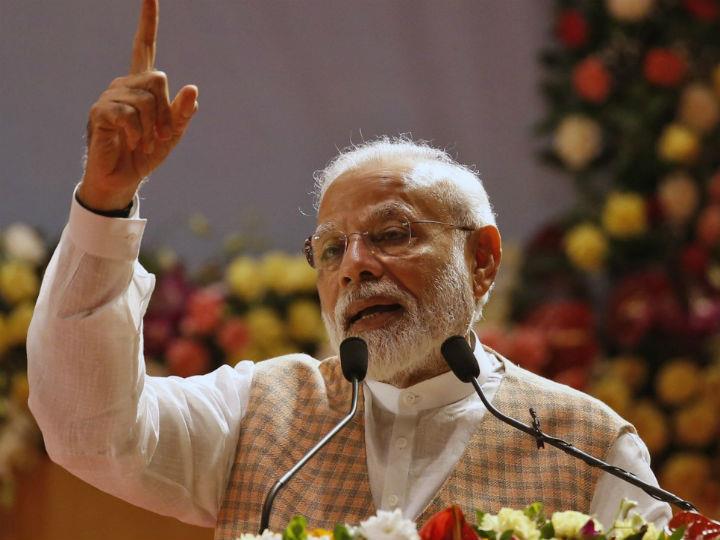by Hans Izaak Kriek*
The time is now, say experts, for India to undertake broad-based structural reforms and use these sweeping geopolitical shifts to modify its trading relationship with the world. Critically, given stiff competition, speed is key if India is to capitalize on the supply chains moving out of China. On this topic, EBR interviewed Ragu Reddy, Vice President at Bank of America and president of the Indian-American community in Florida, who has close ties to Prime Minister Modi.
Question: “What is the reason for Prime Minister Modi to take over China’s trading position?”
Ragu Reddy: “Indian leader Narendra Modi seizes the corona crisis to become the new China, because the Chinese are distrusted by the US and Europe. India presents itself as a safe alternative to investors. Many multinationals no longer want to depend on China.”
Q: “Recently the prime minister unfold his vision for the prosperous future of his country after the coronavirus. A massive aid package of $ 266 billion, about 10 percent of India’s GDP, targeting especially hard-hit small sized companies should make that possible. Is that enough?”
RR: “Modi goes beyond that. He wants to seize the crisis to further reform India by, among other things, overhauling the complex tax system and outdated labor laws. The main goal: to attract foreign investors in order to boost their own economy. In his recently speech, without mentioning the country literally, Prime Minister Modi denounced China’s dominance over the global production chain. He said: "We are going to make the best products, further improve our quality and modernise the supply chain," was his open invitation to the world.”
Q: “Did Indian leader Modi discussed it with the American president?”
RR: “Of course, they are very close to each other. I am sure they call each other frequently. Listen, President Trump recently tweeted a message that said: “Extraordinary times require even closer cooperation between friends. Thank you India and the Indian people for the decision on HCQ. Will not be forgotten. Thank you Prime Minister Modi for your strong leadership in helping not just India but humanity, in this fight.” The thing is that the corona crisis has painfully exposed the dependence on production house and ’medicine power’ China. Something that has been a thorn in the side of the Americans for a long time, and that has also descended on European countries and companies. So frequently consultation is very important.
Q: “So India presents itself as a safe haven for investors and companies, right? What do you think as Vice President of Bank of America; can this be achieved in a short term?”
RR: “In the current crisis, Modi sees his opportunity, due to the worldwide inconvenience about the enormous dependence on China as a supplier for almost everything. International companies based in China may be looking for a new base of operations. And India wants to be that. And even before the corona crisis, the contours of that policy became visible with tax cuts for companies and more flexible rules for foreign parties who want to buy in Indian companies. A policy that is bearing fruit, experts say. Investors are positive. Many multinationals want to diversify and no longer depend on China. Countries such as India and Indonesia will also benefit. Partly because of these financial incentives, we are already seeing investment flows moving to those countries."
Criticasters
The ambition of India is clear, but the question is whether India can cope with becoming the new China. Before the country was paralysed by the corona virus, the economy, which largely revolves around informal labour, was not in good shape. About 60 percent of Indians work without any kind of security, and many of them were sick with unemployment overnight. Economic growth has slowed over the past few quarters while unemployment It is now estimated to be around 27 percent. The lockdown, which has now lasted more than 50 days, has exacerbated all this many times over. In addition, unlike China, the country lacks the infrastructure in many places to become the world’s supply chain.
Q: “I hear that international business people are sceptical. In India they have been talking about copying China’s growth model for almost thirty years. But that is difficult to get off the ground without a good infrastructure. India has a less tightly run central government; the states have a lot of power. They cannot like China the country filling up with high-speed lines.”
RR: “But now they also see the great potential of India. Experts says that the country can compete on wages as China raises the minimum wage. India also has many smart minds. They have been supplying many engineers in the field of software for a long time and have proven to be a reliable partner. While China has a bad reputation for stealing business knowledge. At the beginning of May, it appeared that India had approached more than a thousand American companies to make the step from China to India. Companies like Boeing, Tata Steel, Google, Microsoft, Master Card and Pepsi Cola, medical device makers, food companies, and auto parts manufacturers were allured in April, as Bloomberg revealed. I personally identified and connected 10 top American business’ to potential Indian counterparts.”
*International political commentator and author of the Dutch political book ‘De Patatbalie’ about the relation between media and politicians




 By: N. Peter Kramer
By: N. Peter Kramer
